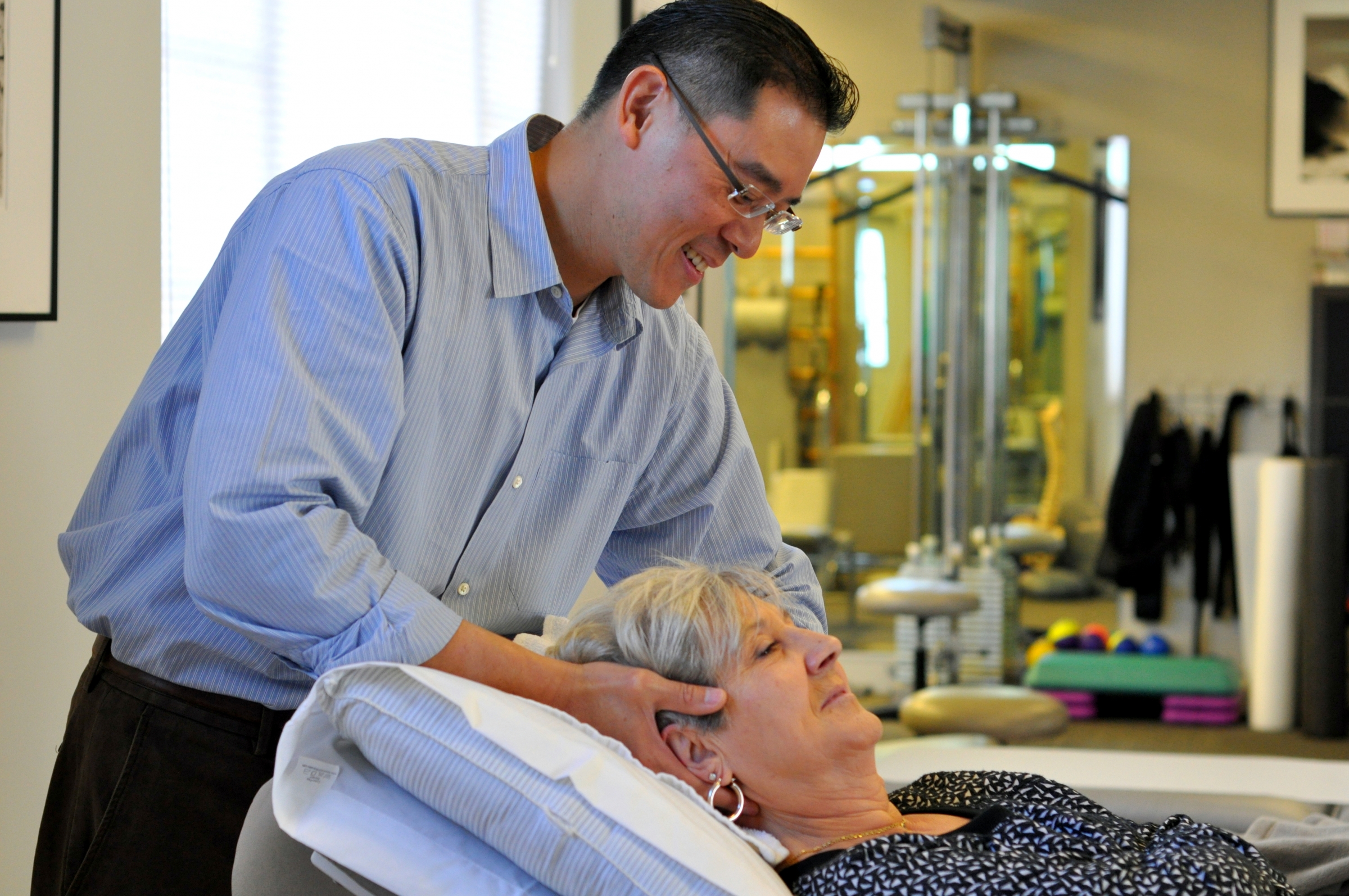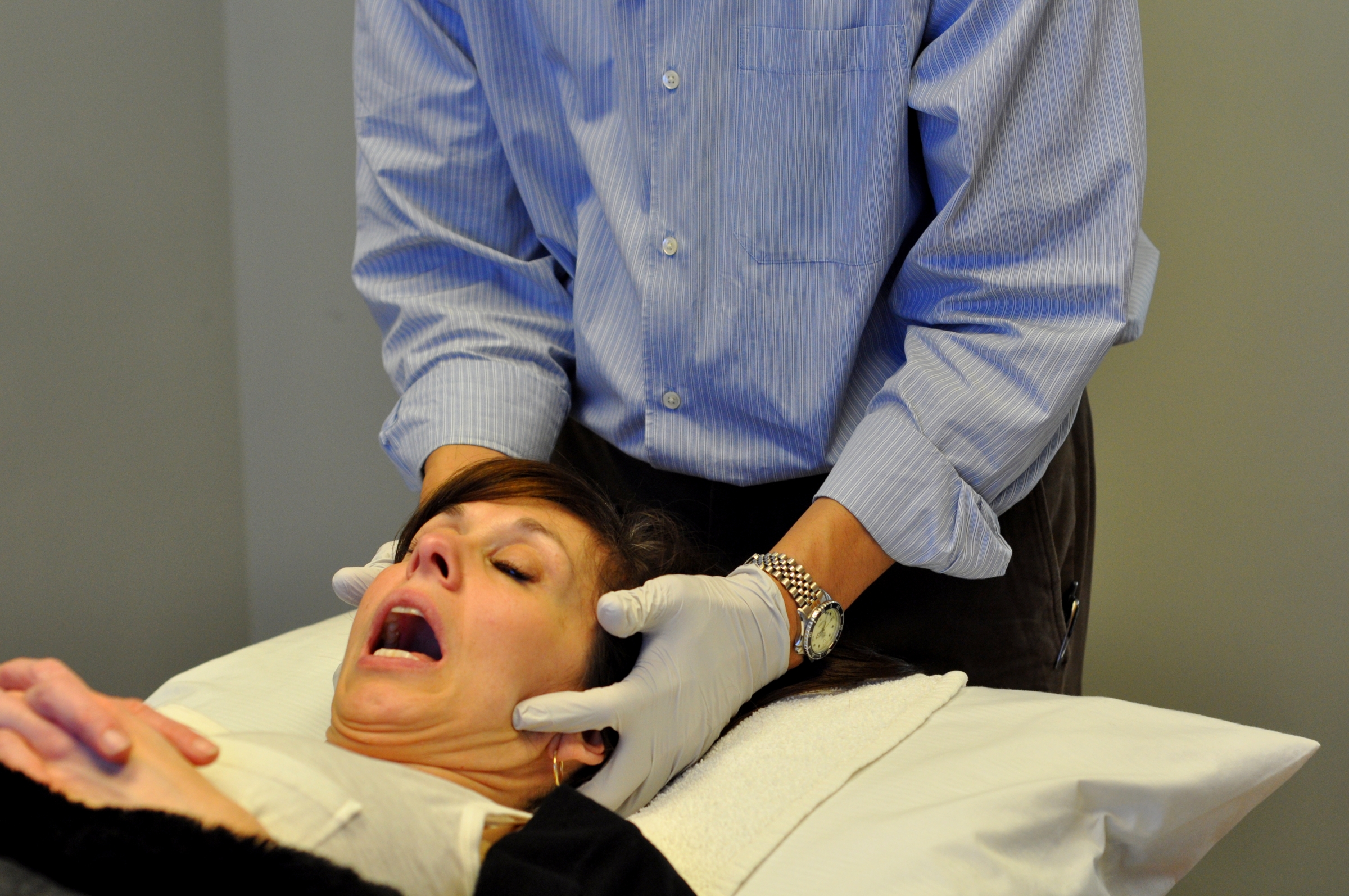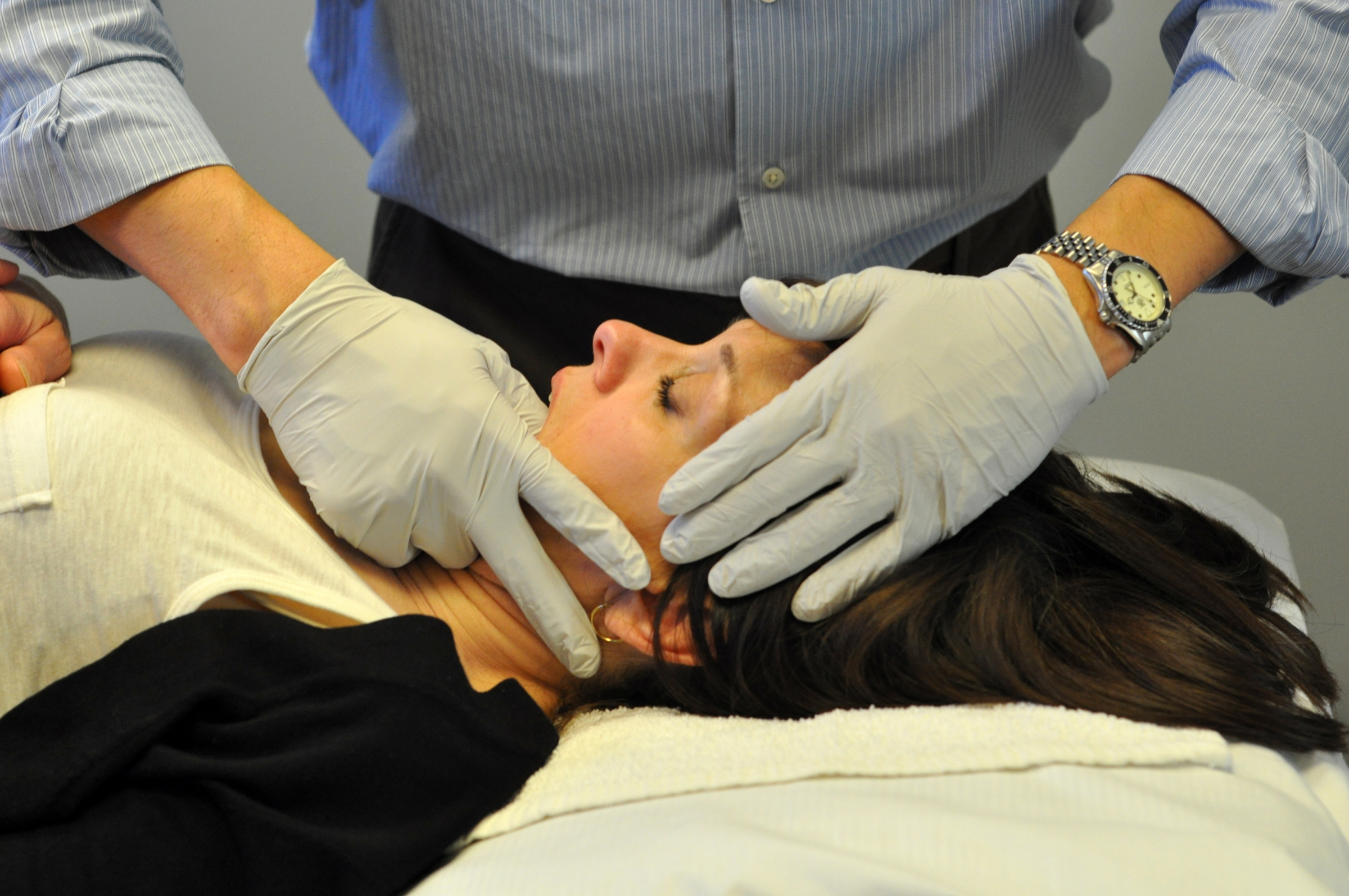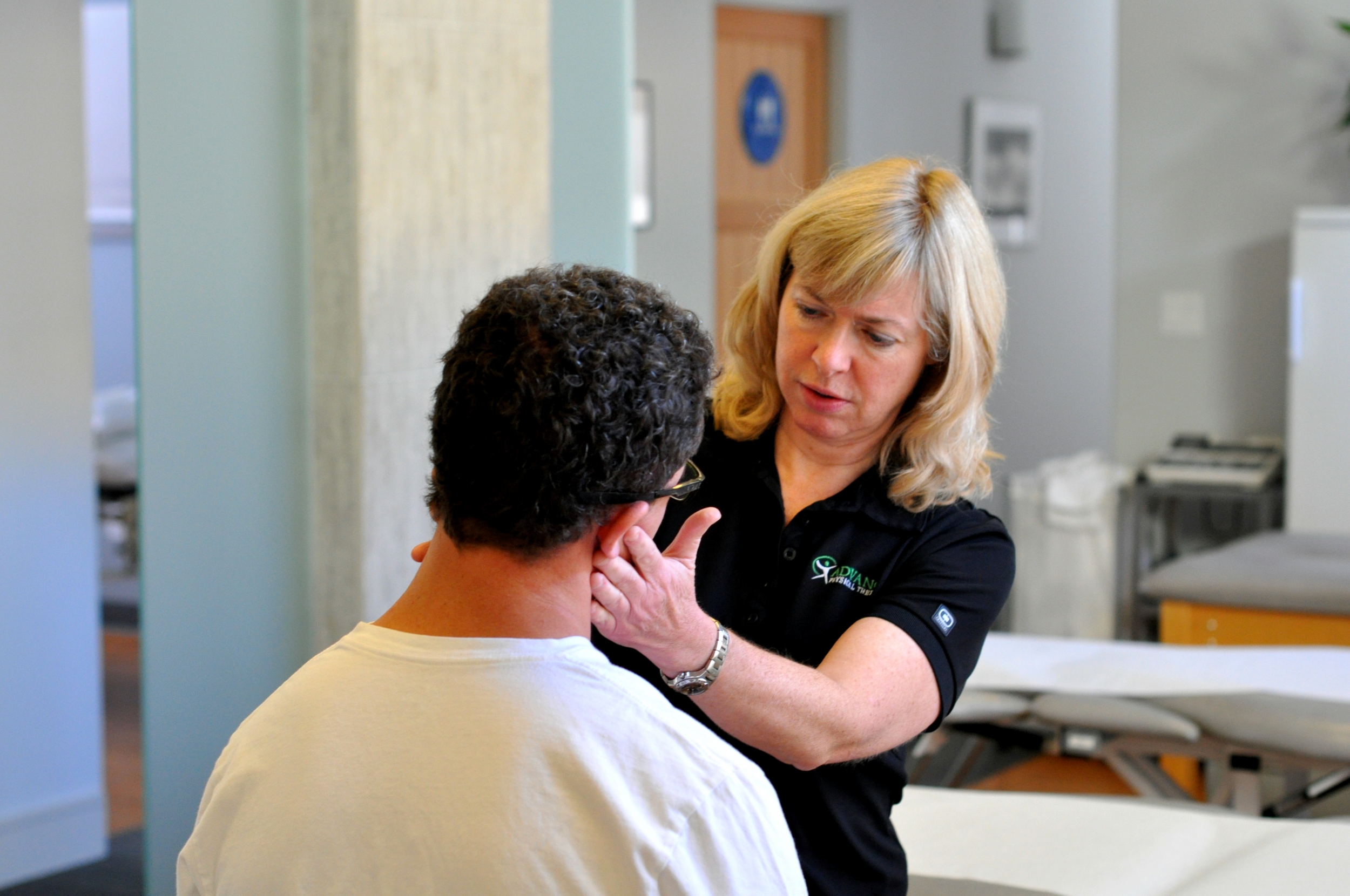After years of constant migraines, clinching and jaw pain, I’ve finally feel free from all the pain associated with my TMJ thanks to APT! No one gave me hope that my pain could ever be fixed after seeing many dentists and specialists until I came to Advance Physical Therapy. Their clinicians and entire staff are extremely knowledgeable and provide an amazing service that gets you better!
Temporomandibular Joint Syndrome
At Advance Physical Therapy, we treat many patients with complaints associated with TMD, or temporomandibular disorder. The symptoms can include jaw and facial pain/tension, jaw cracking and popping, ear pain, toothaches, neck pain and tension, difficulty with the bite, and problems with chewing, swallowing, opening or yawning.
Approximately 80 million people in the U.S. are afflicted with these symptoms. Symptoms usually begin gradually, with cracking or popping in one jaw while eating harder foods, or while opening wide to take a big bite. Sometimes, people begin to have trouble opening for prolonged procedures at the dentist. Often, neck pain, headaches and stiffness accompany early or late stages of TMD. While degenerative changes in the TMJ (tempormandibular joint) with aging are common, it can be managed when the cause of the pain is accurately identified.
The key factor to treating the TMJ successfully is prevention. Knowing the proper prevention strategies and applying them on a daily basis can, in fact, minimize this disorder from becoming a real problem. Seeking early intervention when you notice symptoms developing is more easily treated than a chronic TMJ condition that has been active for months or even years. It’s important to consult with your physical therapist and dentist early on when you suspect that you have TMJ symptoms. If you are consulting your primary care physician or dentist, ask to be referred to Advance Physical Therapy, Inc. for your TMJ treatment.
At Advance Physical Therapy, Inc., our physical therapists will provide you the care necessary to treat the cause and symptoms of this disorder and restore your pain-free quality of life.
TMJ Conditions We Treat
- TMJ Disc Displacement
- TMJ Arthritis, Inflammation
- Jaw Open/Close Restriction
- Jaw Deviation, Clicking, Popping
- Headaches/Migraines
- Tinnitus
- Teeth Grinding
- Jaw Clenching
- Masseter/Pterygoid Guarding
- Cervical Dysfunction
- Postural Alignment
- Stress Management
TMJ Treatment Program
Treating TMD requires a comprehensive and multidisciplinary approach between your physical therapist, dentist and physician. Our physical therapy treatment for the TMJ first starts with a thorough examination to determine the triggers that causes TMJ symptoms that perpetuate a vicious pain-tension-headache cycle.
We often find it necessary to gently mobilize the jaw joint to create space or decompress the joint so that the jaw can open and close more smoothly. The neck (cervical spine) and upper back (thoracic spine) may also need to be adjusted with soft tissue and joint mobilization directed towards regaining better postural alignment. This is extremely important since the head, neck and jaw depends on being stacked upright with proper postural alignment to minimize all muscle strain and tension in the jaw, neck and shoulders.
Stretching and strengthening exercises for the jaw, neck, shoulders and back are implemented to retrain muscles and joints to hold in new positions from which the TMJ can work best. Stabilizing exercises for the TMJ opening and closing muscles are also necessary, since these muscles need to learn how to coordinate movement for chewing, opening/closing and talking. Each stage of treatment is tailored specifically to each person’s unique presentation of symptoms since no two TMJ disorders are the same.
A
So are there things that you can do at home that will help relieve your facial or TMD pain?
- Avoid jutting your jaw forward – for example, when concentrating, during conversation etc.
- Make every effort not to strain the ligaments of the jaw unnecessarily.
- Do not eat foods that require prolonged or excessive chewing such popcorn, bread crusts, gum, or tough meat.
- Cut all foods into small pieces – avoid opening your mouth wide.
- Avoid pressure on your jaw during sleep. Sleep on your back if possible or, when on your side do not sleep with your arm or pillow under your jaw.
- Pay attention to your posture if you spend a lot of time sitting at your desk in front of a computer, and take frequent breaks to relieve stressed muscles.
It is important to find a practitioner that specializes in TMJ treatment in order to ensure a comprehensive assessment and treatment. Our physical therapists are ready to help restore you to a more pain-free quality of life.





